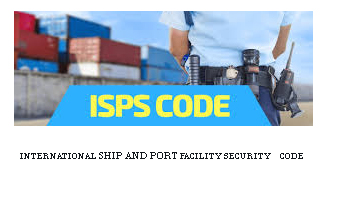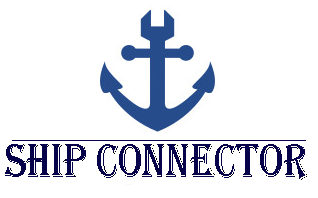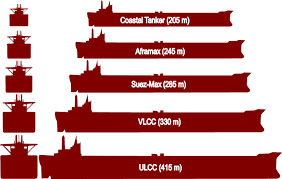International Ship and Port Facility Security Code (ISPS)
International Ship and Port Facility Security Code (ISPS)
After 9/11 attack ISPS came into effect, the regulation is for the safety and security of Port , Ship , Cargo and Crew.
It is an update on minimum security requirements for Vessels , ports and government agencies.
Now the responsibility of ship and port is to detect security threats & take substantial measure against incidents affecting ships or port facilities security used in international trade.
Responsibility lies with Government , Shipping companies , Ship Crew and port / facility personnel.
ISPS or the International Ship and Port Facility Security Code is a maritime regulation for the safety and security of ships, cargo , crew & ports.
ISPS Code Requirement- Every ship must have
- CSO- Company Security Officer
- SSO- Ship Security Officer
Role of CSO – Company security officer advise on possible threats that may happen on the ship,he will always ensure that the ship security plan is always maintained in all manner by the ship security officer.
Role of SSO – Ship security officer most of the time its chief officer of the ship is fully responsible for the safety and security of the ship.
He will ensure that prior arrival to port ship must be ready to follow appropriate security level which the port is following and the level is clearly displayed near the gangway area.

The ship security officer has fully responsibility of the vessels security with the captain’s approval .
He conducts regular security inspections to make sure that the appropriate security checks are always taken.
In addition he will also ensure that the crew onboard is trained well for all security levels.
Gangway check- Gangway
Every ship will check all people arriving ship for any unauthorised weapons, incendiary devices or explosives to ships and port facilities.
A pass is issued during stay onboard and entry is made on ISPS register with person name and I.D details
Alarm –
All Crew must always understand different means for raising the alarm if any security incident is encountered or a potential security threat is assessed.
MARSEC LEVEL
The three levels listed below are the levels which are introduce by the ISPS code
MARSEC LEVEL 1
MARSEC LEVEL 2
MARSEC LEVEL 3
MARSEC Level 1 – The first level is the normal level and the ship or port facility operates at on a daily basis. Cargo operation will continue as it is.
Level 1 ensures that security personnel maintain minimum appropriate security at all times.
MARSEC Level 2 – The second level is a heightened level for a time period during a security risk that has become visible to security personnel.
Appropriate additional measures will be conducted during this security level. Cargo operation may halt or may not depending upon heightened security.
MARSEC Level 3 – The third level will include additional security measures for an incident that is forthcoming or has already happened that must be maintained for a limited time frame. No cargo operation till the time threat is identified and it’s safe to operate cargo.
Read Here For : Commercial shipping


